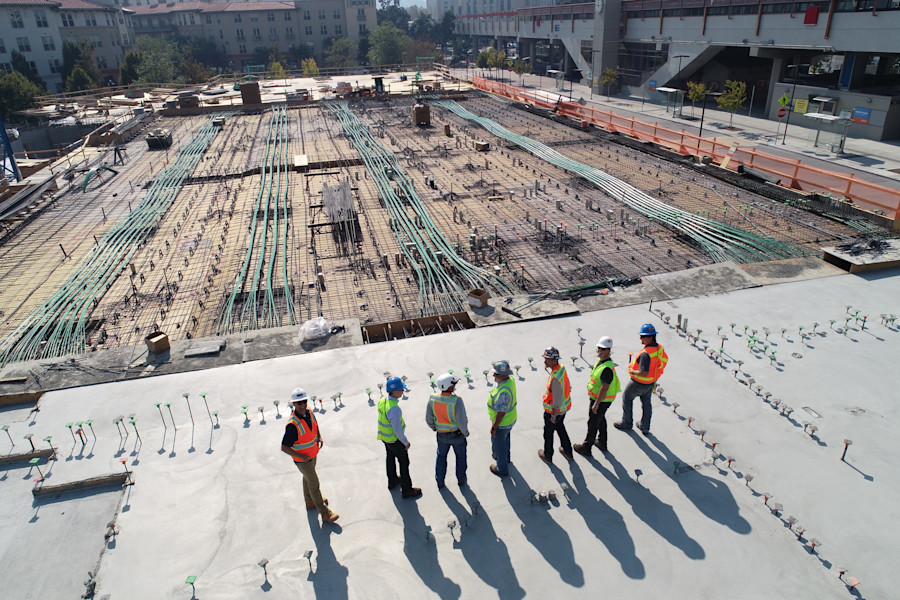While delays in project progress and completion are common in the construction industry, the circumstances leading to the delay can rarely be foreseen at time of commencement.
For this reason, contractual provisions dealing with time and progress are drafted broadly, allowing for a process of claim and assessment as required.
A consultant or contractor who gets the procedural steps right, at the right time, has good prospects of avoiding liability arising from delay, being liquidated damages as well as potentially general damages.
Unfortunately, we see all too many "good" claims for extension of time fail because they were not made properly (in writing with sufficient detail) or not made at the right time.
With an eye on the impact of the COVID-19 pandemic, it is an opportune time for construction consultants and builders to consider the steps necessary to avoid liability arising from delay.
Process
The most commonly missed step in the process is the first and most important step; provision of notice of delay within the time set out in the contract. Sometimes the event which has caused (or will likely cause) delay, is simply missed. The forensic argument in that case will be focused on the discoverability of the event and whether a reasonably competent consultant or contractor ought to have picked up on the event and its impact on progress.
Just as often however, the event and its impact on progress is known to the applicant but there is an election made to not submit a notice of delay or make an application for an extension of time for a number of reasons, including:
- a mutual abandonment of the contractual processes, where claims for variations or extensions of time are approved even though they are made in a manner not contemplated by the contract or out of time;
- where the head contractor and/or principal has actively discouraged the submission of contractual claims – you have no doubt seen the type of correspondence, "Don’t make a claim just yet, we’ll make up the time or extend time at a later stage"; and
- a reluctance on the part of the consultant or contractor to compromise commercial relationships by drawing attention to the event, either because there is optimism that the time can be made up or because, strangely, the consultant or contractor does not want to seem "overly contractual".
Steps outside the contractual process often happen when the commercial relationship between the parties is good. At the beginning of the project when projected timeframes seem adequate, parties may take a relaxed attitude towards contractual processes, but plenty can happen during the life of a project to eat away at a previously adequate program or to sour previously good relationships. It is at this precarious point, where contractual processes will come into very sharp focus.
Looking at the three reasons above, if a consultant or contractor has failed to notify of delay and claim an extension of time for the first or second reasons, there are sound legal arguments to be made preserving the right to an extension of time. If however, the reasons for non-compliance with the contractual process are those set out in the third scenario, there is a lot of work to be done to recover the contractual entitlement.
The time to seek legal advice is during the life of the project, ideally at the occurrence of the event which has caused (or will likely cause) delay. A timely and properly crafted notice of delay and claim for extension of time, will preserve all of the rights that the consultant or contractor agreed to at commencement.
Form
The form and content of the notice and claim will vary depending on the requirements of individual contracts.
The notice and claim should be comprehensive but as simply stated as possible. That is obviously a difficult balance to achieve, but inclusion of the following information is a useful guide:
- (a) a heading which identifies the correspondence as a "notice of delay" and/or "claim for extension of time", together with a reference to the contractual clauses which require the notice and allow for the claim;
- (b) a description of the event which has caused (or will likely cause) delay;
- (c) timing of the event;
- (d) cause of the event;
- (e) what impact the event has had (or is likely to have) on project resources and the program;
- (f) photographs (if appropriate), records, sketches, relevant designs and correspondence;
- (g) how the consultant or contractor may recover progress if possible; and
- (h) estimated costs associated with the delay event.
If there is a project-specific platform for delivery of notices, the notice and claim should be uploaded there. Correspondence of this nature should not be exchanged by individuals via ordinary emails, by fax or post, if it can be avoided.
How will delays caused by COVID-19 be treated?
Consultants and contractors are obviously keen to understand how delay caused by the COVID-19 pandemic will be treated. The answer is simply, "like any other cause of delay, in accordance with the contractual provisions dealing with time and progress". For that reason, the requirements of the contractual process must be followed as closely as possible. Timely and properly crafted notices should be issued as soon as the potential for delay is discovered.
The pandemic will cause delays to construction projects. Delayed manufacture and delivery from overseas will occur and there will be delays (even at the design stage) associated with manpower in light of government restrictions around gatherings and normal business operations.
Whether or not the pandemic is a force majeure event will depend on individual contract wording and the extent of working restrictions by government intervention in various locations. The sensible approach is to be cautious and assume the force majeure provision will not be triggered. Consultants and contractors should constantly assess and update the baseline program with reference to focused reasons for delay, be it manufacture or manpower, rather than to broadly say, "COVID".
In each circumstance, it will need to be considered whether the delay claimed is excusable or non-excusable by reference to the categories of events set out in the contract.
Author Joseph Callaghan, Special Counsel
All information on this site is of a general nature only and is not intended to be relied upon as, nor to be a substitute for, specific legal professional advice. No responsibility for the loss occasioned to any person acting on or refraining from action as a result of any material published can be accepted.
 Client portal
Client portal











